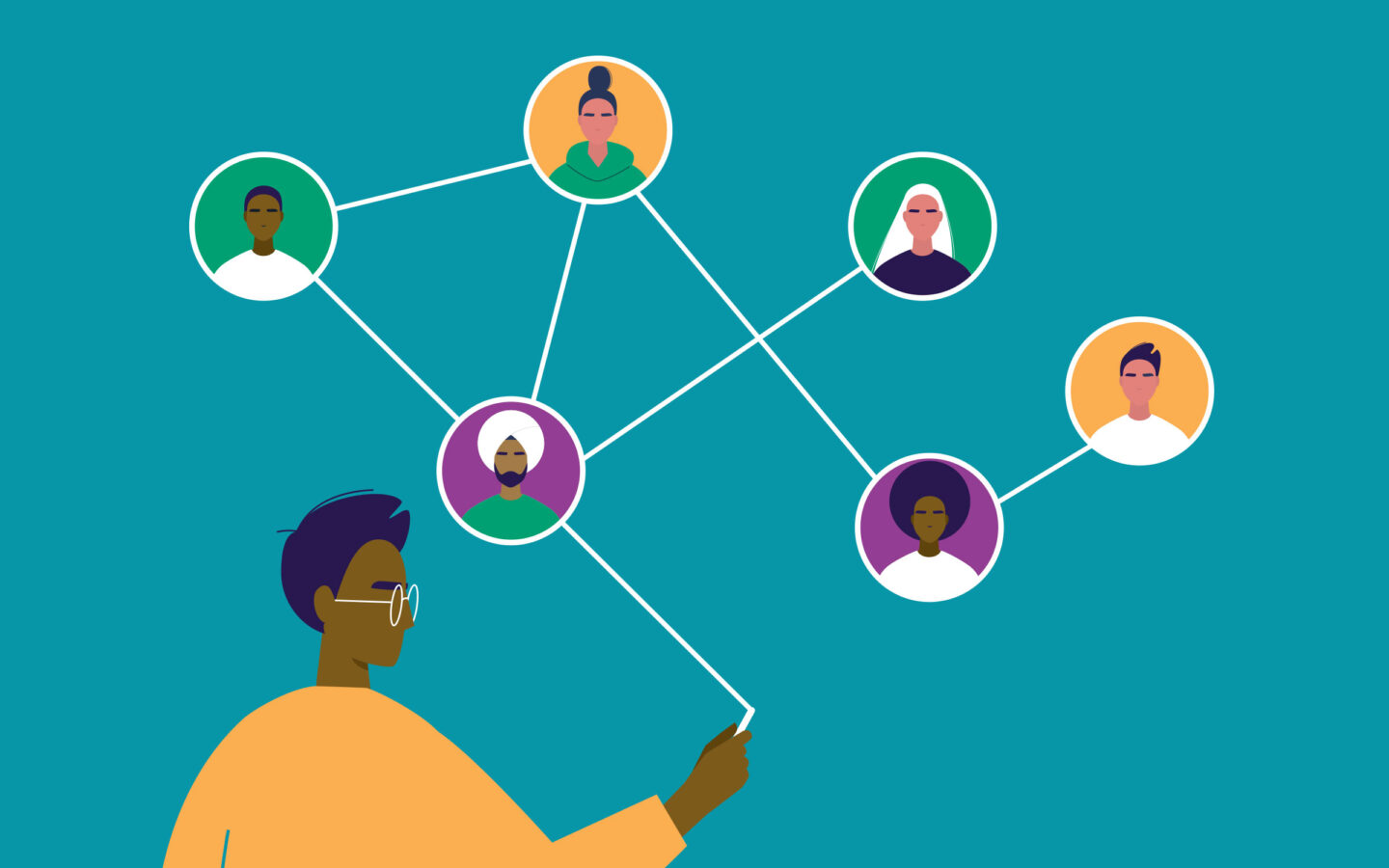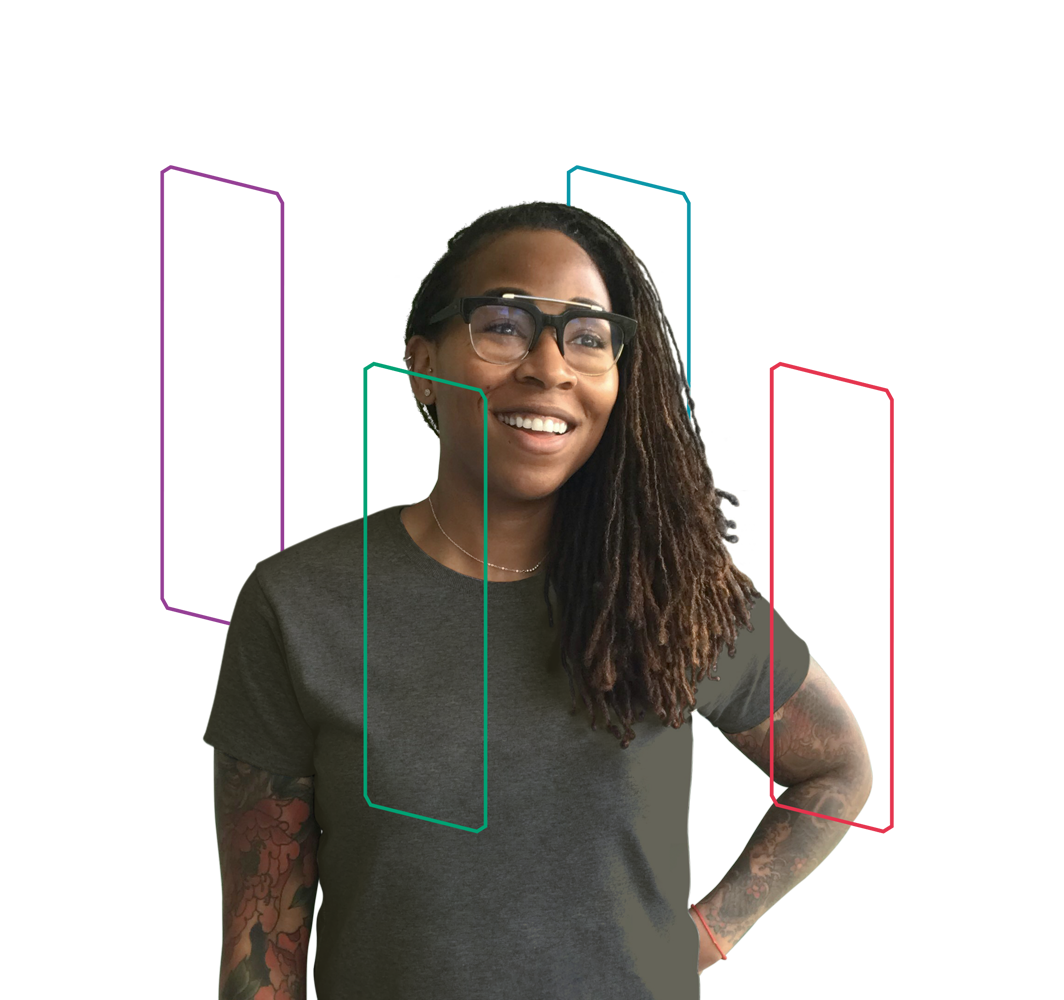- As a follow-up to our interview with the nurse innovators behind #NurseHack4Health, we spoke to Renee Davis about her experience at their event, which was her first hackathon.
- Renee was nervous about participating, so nervous that she almost pulled out at the last minute! Between three kids and a home renovation, it wasn’t exactly the perfect weekend to invest in innovation — but she’s so glad she did.
- During the weekend-long intensive event, Renee and her team built a digital app to help educate nurses and patients about the COVID-19 vaccines, and address concerns and hesitation.
- We’ve said it before, and we’ll say it again: Nurses are innovators. And nurse hackathons are a great way to grow our problem-solving skills and advance our identities as entrepreneurs.
Back in the fall, we interviewed two nurse innovators and hackathon organizers, Marion Leary and Hiyam Nadel. They told us all about the event they were planning, #NurseHack4Health, and answered our many questions about hacking, including “What the heck is a hackathon?”
As part of the interview, we asked them what they wanted participants to get out of the event, and to our delight, they not only told us, they also connected us with first-time participant, Renee Davis. Renee is a nurse educator with 18 years of nursing experience. She’s also an entrepreneur who founded and now leads ProDevo, a nursing education consulting practice. And on top of all that Renee is a mom of three littles. Like so many nurses, Renee is beyond busy!
So, we were extra excited that she made the time to talk some SHIFT with us about what it’s like to participate in a nurse hackathon — and why it was totally worth her time.
SHIFT: First, tell us why you decided to participate in this year’s #NurseHack4Health.
Renee Davis: “I love healthcare. I always knew I wanted to be in healthcare. Nursing ended up being the right fit. I became intrigued by hackathons sort of by chance and have been exploring them for the past year. I was actually supposed to attend this one last year, but something came up last minute. But I kept it on my radar for this year! I had been looking over some stuff online, and simultaneously, I was also reading and researching the concept of design thinking. That’s the framework that is behind most, if not all, hackathons. It focuses on creating solutions with the end-user in mind. It intrigued me, and eventually, I wound up just going for it with #NurseHack4Health.”
SHIFT: What was it like to experience this hackathon virtually? Tell us about your experience overall.
Renee Davis: “While I wish I could have done it in person, the virtual format was actually a lot easier to attend for me personally, because I have three small kids at home. Although it was challenging to disconnect from the family for two and a half days, I have a very supportive husband and he knew how important this was to me.
The experience itself was very intense. It required deep work and focus to be able to produce things fast and collaborate with others. You know, as the saying goes, no pressure [laughs]! But it was also a surreal experience to see that we were able to get something meaningful done in such a short amount of time, and to sit at the table with folks that want to make a difference.
I entered this whole thing with a bit of trepidation. I was tempted to just kind of pull out and say, you know, ‘maybe this is not really for me.’ I didn’t know if I could do it. We were juggling a lot at the time, including our personal lives. The weekend of the event was one of my daughter’s birthdays and we were doing home renovations. There I was, sitting in the basement doing my first hackathon! I had this moment where I thought, ‘I’m so happy I didn’t pull out at the last minute.’ Because I was very close to it. I wasn’t sure if I could ‘hack’ it (haha!), but with my team, I did, and I’m so thankful.”
SHIFT: Tell us about the process your team went through and the solution your team ended up developing.
Renee Davis: “Our team was called Team Mobile Education. When I registered and enrolled in the hackathon, I felt empowered to create my own team. I wanted to focus on nursing education because that’s truly my passion. I want to elevate nursing education for our future and current nurses. My initial vision was an app for nurses to be able to access educational materials on the go. Nurses are mobile beings. We’re not static, we have to be moving. No matter what role you play in nursing, even in leadership, we’re all over the place, literally. I felt it was important that nursing education be made more accessible, and an app is a great way to do that.
As a news junkie myself, I also wanted to build something that shared the latest news on COVID-19 out to nurses, so they were always in the loop. Our team talked about blending this app into both a news center and an education area – sending the most up to date news and educational tools directly to nurse’s mobile devices. So, we started out building a news app to disseminate COVID-19 information to nurses. But our coaches Marion Leary and Hiyam Nadel recommended we focus more on the education side of things. Ultimately, we focused on the challenge of managing the misinformation that’s been so prominent around the pandemic and figuring out what we can do to mitigate that.
Our team was comprised of about eight people from all over the world, and one of the areas we all recognized as rife with misinformation – from Pakistan to Saudi Arabia to the United States – was the COVID-19 vaccines. There’s misinformation about these vaccines being spread all over the world. With this, we decided to create a free downloadable app for nurses to provide them with information on how to address vaccine hesitation. People are hesitant to receive vaccines for several reasons, whether it’s political, fear, or just lack of education. This app is dedicated to helping nurses address patient hesitation, but also their own.”
SHIFT: Building an app sounds… hard. How did you do it, and is the app available right now?
Renee Davis: “My expertise is in helping nurse educators integrate technology into their teaching. I’m not an app developer, I don’t know how to code. But because apps have evolved so much over the past several years, there are now platforms where you can create them without any coding at all – or if it is coded, it’s very minimal. It is actually easy for the lay coder or a person that’s not even a coder at all to be able to create one.
The prototype of our app is available on GitHub, which is an open-source platform. That means that anyone can work on it, so one day soon it will hopefully become a finished product available for download in the app stores.
Building this app helped me understand the process of designing something like this and to gain a deeper understanding of the design thinking framework – considering what a user needs wants from an app.”
What do you think are the benefits of participating in hackathons, especially for nurses?
Renee Davis: “I think hackathons can make you feel confident, especially as a nurse. During the last day of the hackathon, our team had to pitch our idea to a board of experts – similar to how you’d pitch an idea to the CEO of a tech company. It’s a great opportunity for nurses to collaborate with people from different industries and be able to say, ‘Hey, I have this idea that can address a major challenge.’ It’s powerful. We don’t learn that type of business-savvy in nursing school. When you ask your average bedside or point-of-care nurse, they probably don’t know what a hackathon is. I think that was one of the main goals of the organizers – to make sure that nurses have a seat at the table – to give us the power to sit down with software engineers, design engineers, and app developers and tell them what we need.”
Looking for more?
Hackathons are a great way to build on our inherent inclination to innovate. As Renee said, they give us the tools we need to take our ideas to leadership and get that seat at the table. The next #NurseHack4Health is May 14-16, 2021 – mark your calendars!
Thanks to Renee Davis for sharing her experience with us, and to Marion Leary, Hiyam Nadel, and Rebecca Love for introducing us to nurse hackathons. For more on hackathons and innovation in nursing, check out part one of our hackathon series, “What the Heck Is a Hackathon?” and the season finale of the SHIFT Talk podcast featuring Rebecca Love in A Love Letter to Nurses.


